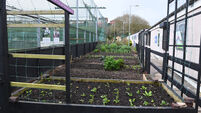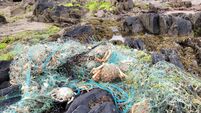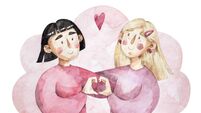Three women share sustainable solutions to help us become 'healthier, fitter and happier'

Karin Dubsky, Tara Shine and Cara Ostenborg.
Increasing global temperatures and natural disasters caused by human activity all point to one indisputable truth: climate change is very real and the next eight years are critical in shaping what happens next. Environmental scientists almost unanimously agree that while the need for change is urgent, the damage done is not irreparable.
The Intergovernmental Panel on Climate Change, a division of the United Nations, issued a statement to policymakers in 2021 saying that immediate steps to reduce carbon emissions could reduce global temperatures and enhance the quality of the atmosphere. While the consequences for the planet are indisputable, the human cost of this crisis is also significant.










